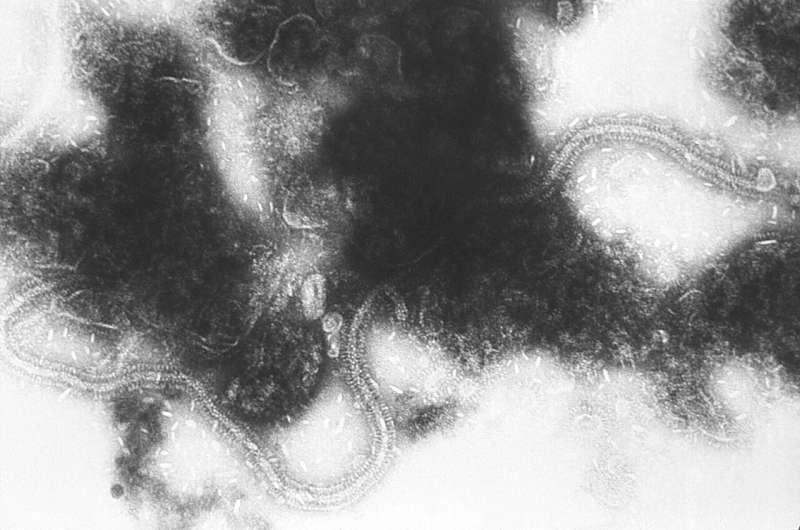Nose swabs may distinguish babies with RSV needing longer intensive care

When a child with RSV requires intensive care, parents often ask about how long it will take before their child can go home. Currently, there is no reliable way to answer this question. Results of a new study from Ann & Robert H. Lurie Children's Hospital of Chicago, however, offer important insights.
Researchers used nose swabs from children with RSV in the pediatric intensive care unit (PICU) within a few days of hospital stay to examine what genes turn on in response to the virus. They found that despite the same quantity of RSV and the same clinical presentation, some children had signs of greater damage to the cells lining the nose, and this correlated to longer PICU stays.
Results were published in the journal Frontiers in Immunology.
"We were excited to find that the severity of a child's illness related to the different sets of genes turned on in their body's response to RSV," said senior author Bria Coates, MD, Critical Care physician at Lurie Children's and Assistant Professor of Pediatrics at Northwestern University Feinberg School of Medicine. "The ability to identify which infants with RSV in intensive care will recover quickly and which patients will require a longer stay would provide invaluable information to parents and medical providers."
Dr. Coates cautioned that these findings would need to be validated in a larger group of children before they could be used clinically. If the results hold true in larger studies, then a PCR test could be developed to distinguish the children who would likely take longer to recover from critical RSV illness.
"At this stage, we saw that more injury in the nasal mucosal membranes of children with RSV may be a marker of a dysregulated response to the virus and predict more prolonged illness," said Dr. Coates, who also is the Crown Family Research Scholar in Developmental Biology. "These are promising findings that ultimately might offer better answers to parents and the care team."
More information: Clarissa M. Koch et al, Cilia-related gene signature in the nasal mucosa correlates with disease severity and outcomes in critical respiratory syncytial virus bronchiolitis, Frontiers in Immunology (2022). DOI: 10.3389/fimmu.2022.924792



















